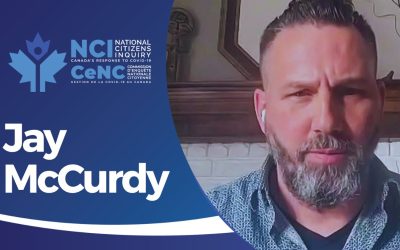All parents want their children to receive a great education. This desire is understandable because a solid education significantly improves a young person’s chances of success in life. In particular, literacy and numeracy have been and still are the foundational skills that will never become obsolete. No one should ever graduate from high school without mastering these basic skills.
There are more than 170,000 K-12 students in public or fully funded separate (Roman Catholic) schools in Saskatchewan.1 The vast majority of Saskatchewan parents rely on public education to provide their children with the skills and knowledge that they will need in the future. In many cases, things go well, and parents are satisfied. Unfortunately, this does not always occur.
Although Saskatchewan’s education system has many positive features, there is significant room for improvement. Recent test results from the Programme for International Student Assessment (PISA) show that over the last decade Saskatchewan students consistently scored below the Canadian average in reading, mathematics and science. During that same period, the reading and mathematics scores of Saskatchewan students declined.2
Many Saskatchewan parents are beginning to worry that the schools are not teaching the basics and are using their children as guinea pigs for unproven and ineffective educational strategies. They wonder why their kids no longer have spelling tests, learn basic grammar or memorize the times tables. Often, their concerns are dismissed with the claim that “research proves” the effectiveness of a new strategy or initiative, no matter how bizarre it sounds to parents.
A debate over the relevance of standardized testing dominated much of the education discussion across the province last year. Critics argued that these tests stifle the creativity of teachers and lower the quality of education in Saskatchewan schools, and supporters argued that standardized tests are an important accountability tool. Both sides claimed to put the interests of students first, but obviously only one side can be correct. In the midst of a debate that seemed to generate more heat than light, parents were left to try to figure out which side was right.
This confusion becomes even worse when parents get their children’s report cards and find that traditional percentage grades have been replaced with confusing descriptions such as “evident,” “emerging” or “needs support.” Decoding these words is no easy task for parents and makes it that much harder for them to know how well their children are actually doing in the core subjects. Unfortunately, the concerns of parents have often been ignored, as school administrators continue to blindly follow the recommendations of the latest educational gurus.
So what are parents supposed to do? Where can parents go to get information to push back against some of the foolish fads that are taking hold of education in Saskatchewan? Unfortunately, parents are often on their own in the fight against an entrenched ideology that is supported by an entrenched bureaucracy. School administrators and teachers know that they only need to w ait out the concerned parents, who will eventually give up in frustration at the stream of edu-babble thrown at them. Some of these parents will ultimately decide to home-school their children or send them to private schools.
This handbook fills a void in this debate by providing parents with answers to some of the common arguments made by proponents of the latest education fads. It translates some of the most commonly used jargon into common English and shows why parents should not be intimidated by the stock phrase “research shows” when school officials spurt it out. Parents and other readers may be surprised at just how compelling the research evidence is for the more traditional teaching techniques. This handbook will make parents wonder how these unsupported fads keep returning.
Let us begin by looking at the philosophy that underlies some recent education trends.


